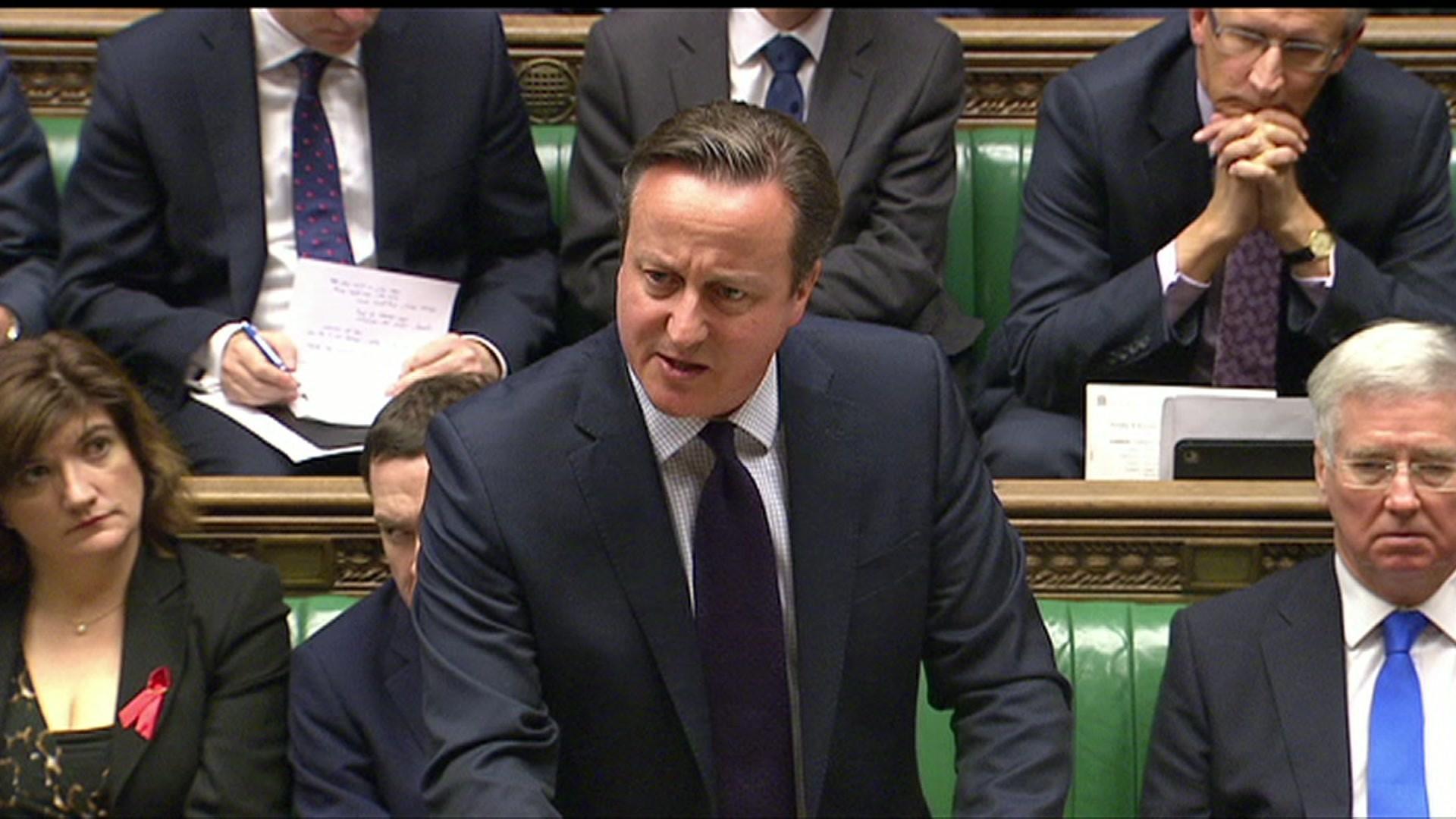Where are British troops deployed overseas?
- Published
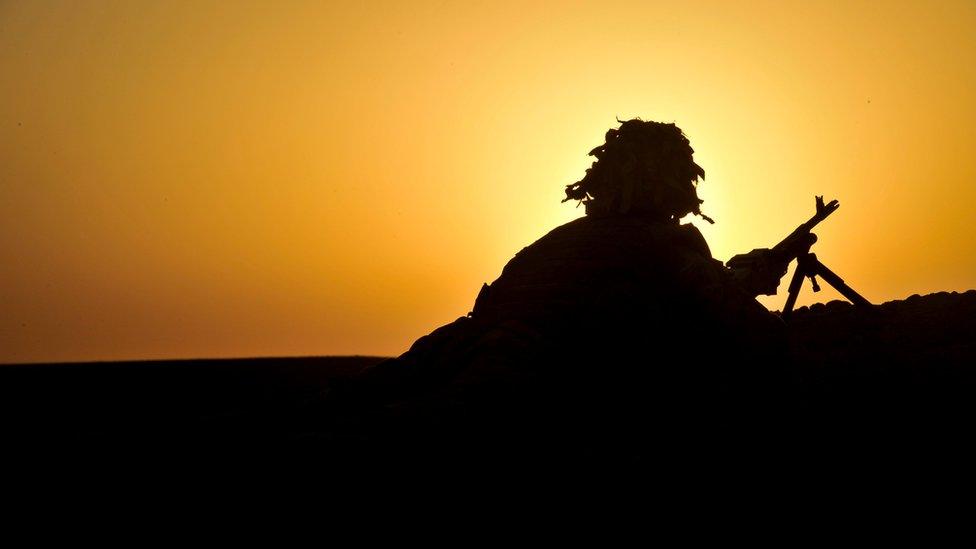
MPs are set to hold a debate and vote on Wednesday over whether the UK should extend its bombing of IS targets to Syria.
British armed forces are already deployed in more than 80 countries across the world in a range of roles, including some major deployments listed below.

Afghanistan
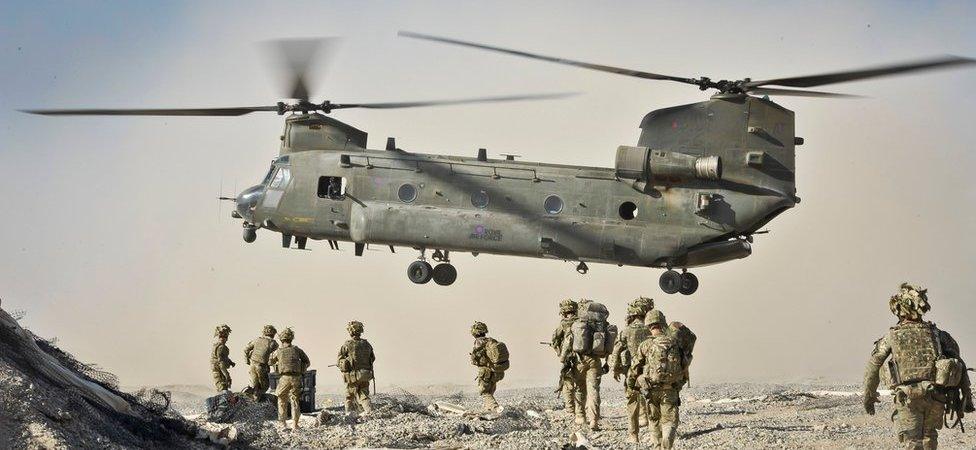
About 10,000 UK troops were based in Afghanistan at the height of the conflict
About 450 UK troops remained in Afghanistan to advise and train Afghan security forces after combat operations ended in October 2014.
This number of troops is to be maintained throughout 2016.
UK forces were part of a US-led coalition which toppled the ruling Taliban in 2001 after the 9/11 attacks in the US.
More than 450 British troops died during the 13-year Afghanistan war and at the height of the conflict, in 2009, about 10,000 UK troops were based in the country.
Bahrain
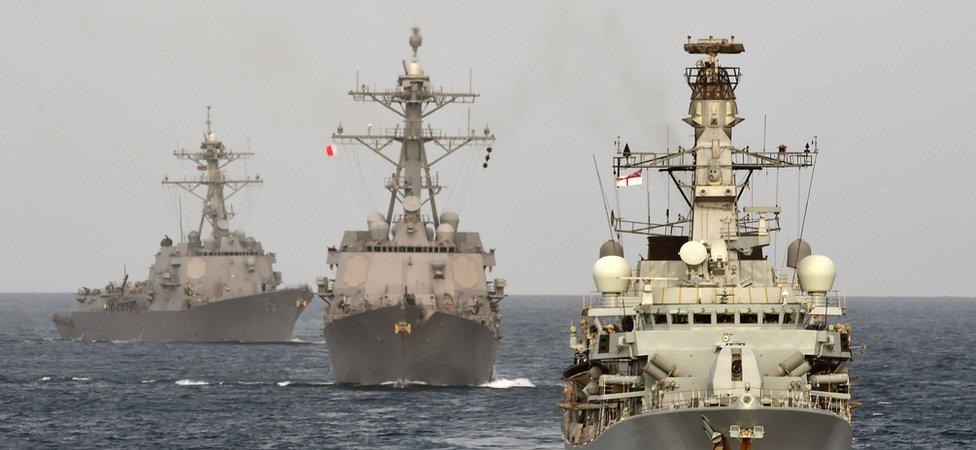
HMS Juffair in Bahrain will help service the UK's minesweepers and, in due course, aircraft carriers
One of the places in which the Navy is expanding its presence is Bahrain, where construction on a new naval base, HMS Juffair, started in October.
The base will be the first east of Suez in the Middle East since 1971, and it will service Britain's minesweepers and two new aircraft carriers.
Current military duties of British units stationed in the country vary, but troops are generally involved in providing joint infantry and amphibious training to overseas forces.
Baltic region
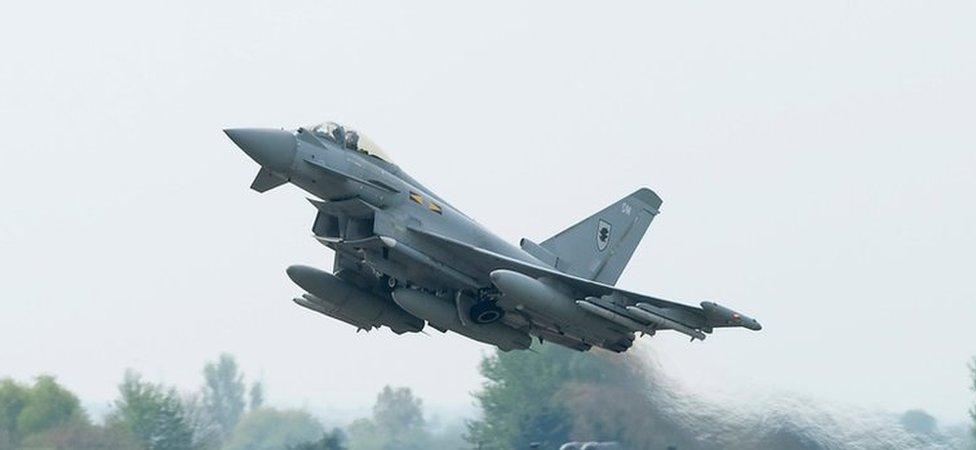
The presence of troops in the Baltics is designed to reassure eastern European Nato members
About 100 British military personnel are based in Estonia, Latvia and Lithuania and a further 25 are deployed on a continuing training mission in Ukraine, according to the MoD.
Troops are in the Baltic region to deter Russian aggression beyond Ukraine and reassure eastern European Nato members, the government has said.
They help lead large-scale training exercises for international armed forces, and the RAF has been sending Typhoon jets to the region to help patrol the skies.
Cyprus
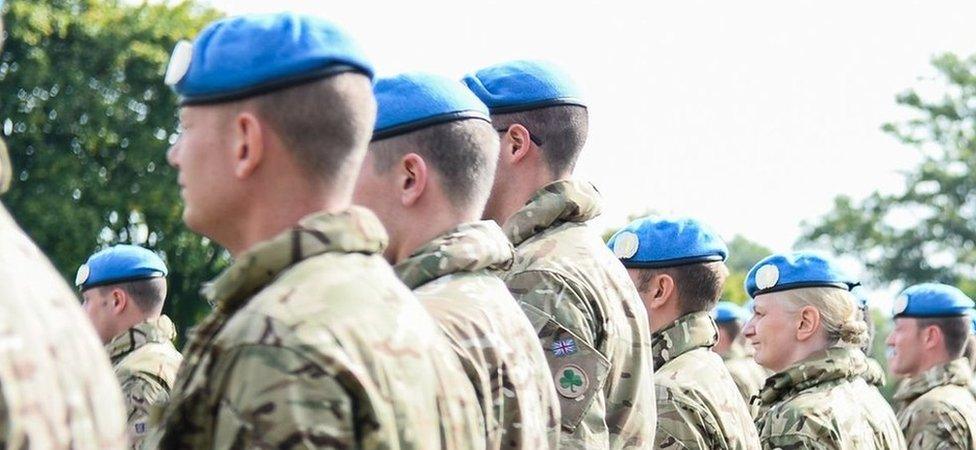
British soldiers on a peacekeeping mission in Cyprus
Cyprus has been an independent republic since the 1960s, but Britain retains two areas of sovereign territory on the island.
These are used as bases for about 2,200 armed forces personnel permanently deployed there, which includes roughly 250 UN peacekeeping troops.
Others are stationed at Royal Air Force bases on the island - such as Akrotiri, from where units have been flying since September 2014 to conduct air strikes, external against IS in Iraq.
The Falkland Islands
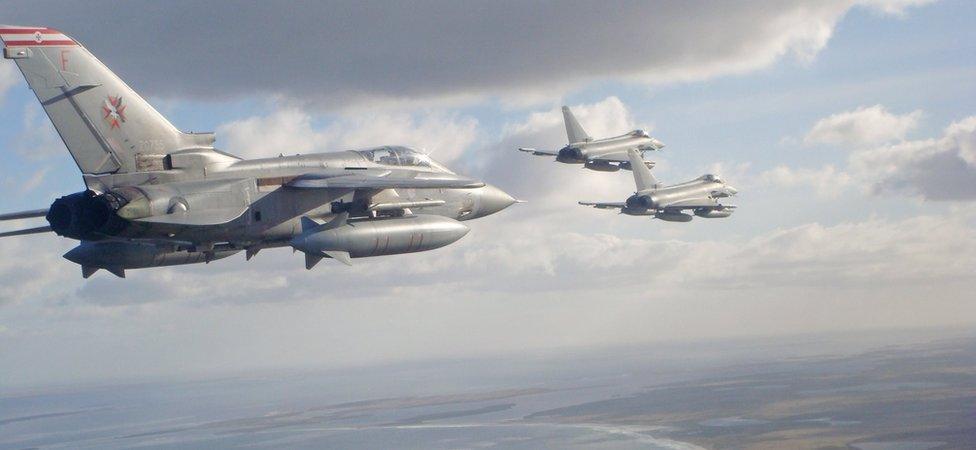
Around 1,200 UK military personnel remain stationed on the Falklands
A strong military presence has remained on the Falkland Islands since the war between Britain and Argentina over the territory in 1982.
As part of a government package to invest £280m in renewing and increasing its defences on the Islands, around 1,200 military personnel remain stationed on the islands.
According to the MoD, defences include surface-to-air missiles, Royal Navy ships, RAF Typhoon jets and specialist troops, and military personnel are also responsible for search and rescue assistance.
Notably, Prince William served as an RAF search and rescue helicopter pilot on the islands in 2012.
Germany
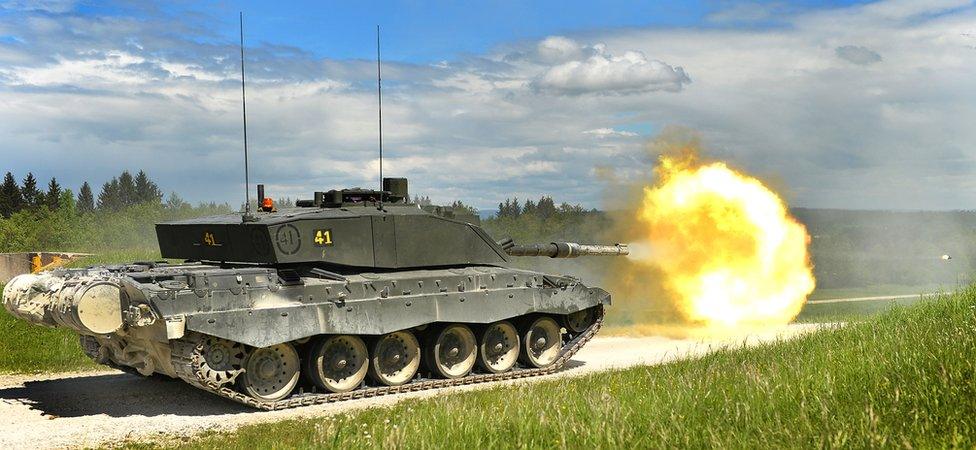
A Challenger 2 tank firing during a live exercise in Grafenwöhr, Germany
British armed forces have been based in Germany for about 70 years, but the UK announced plans in 2010 to relocate all troops serving in the country by 2020, external.
About 6,000 military personnel are currently deployed in Germany, but this is scheduled to be reduced to 4,400 troops by 2016.
In the government's most recent strategic defence review, it said the intention was still to withdraw forces from by 2020, but "we will continue to seek opportunities to train alongside the German armed forces", external.
Germany, it added, was "an essential partner".
Gibraltar
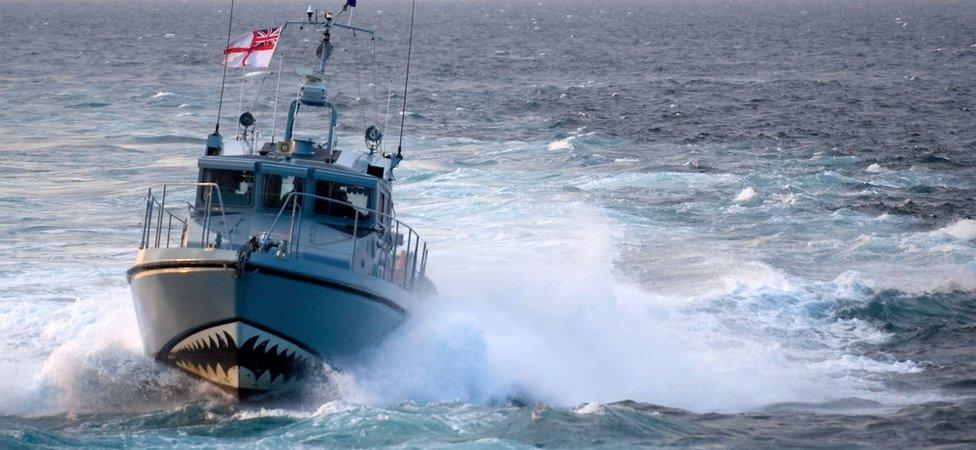
HMS Sabre is one of the Royal Navy's Gibraltar Squadron's fast patrol boats
Gibraltar is a permanent joint operating base for UK operations in the region.
Britain rules Gibraltar under the terms of the 1713 Treaty of Utrecht, but Spain continues to claim sovereignty over the territory and there have been numerous disputes between the nations.
The Rock is home to about 160 military personnel who are responsible for military communications and maintaining infrastructure, amongst other things.
Military units stationed there include the Royal Navy Gibraltar Squadron, which is one of the Navy's two permanently deployed sea-going units.
Their role is to patrol Gibraltar's shores and watch over shipping, contribute to joint operations and provide a 'quick reaction force' for ships in the area.
Iraq
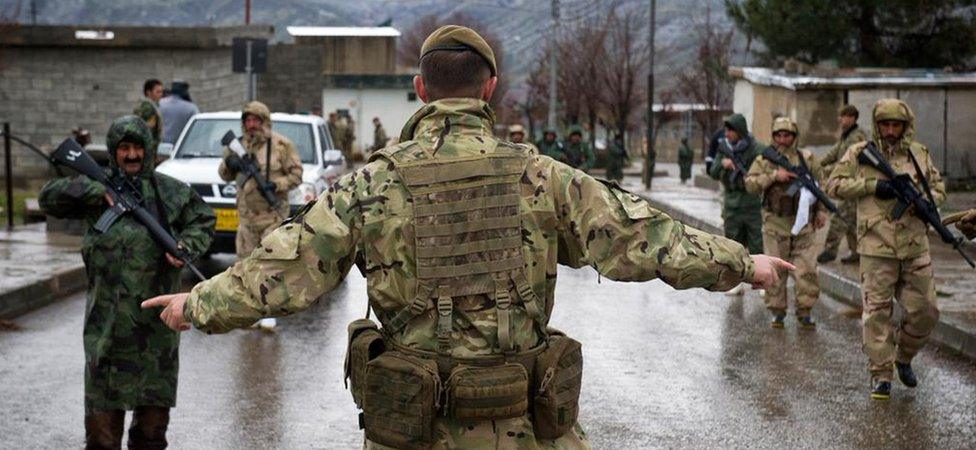
UK troops in Iraq are helping to train domestic security forces battle Islamic State fighters
British forces ended combat operations in Iraq in 2009, six years after the beginning of the war to oust Saddam Hussein's government amid concerns it was concealing weapons of mass destruction.
A number of British troops remained to train Iraqi security forces in counter-IED skills, equipment maintenance, medical skills and information operations.
In July, Prime Minister David Cameron authorised the deployment of up to 125 additional troops, external to help train domestic security forces to battle so-called Islamic State.
This will take the total number of UK military training personnel in the country to more than 275.
Kenya
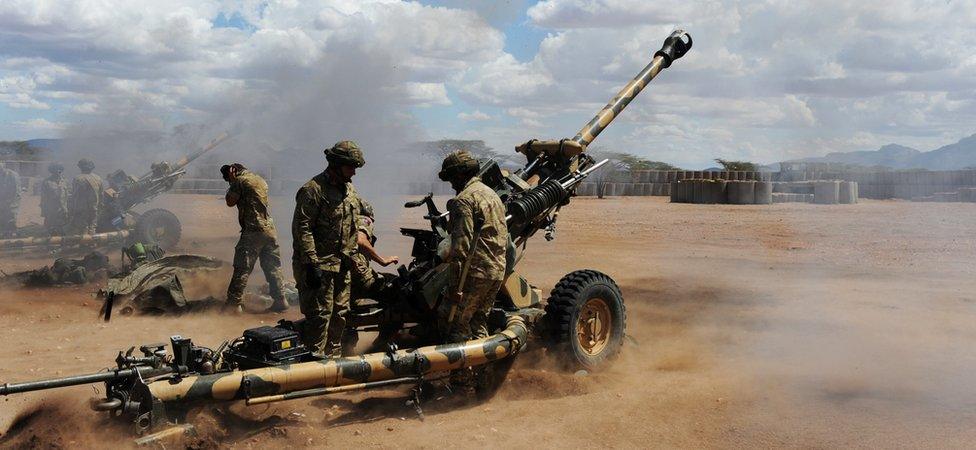
British troops in Kenya are largely responsible for UN peacekeeping and training other British units
More than 200 military personnel are permanently stationed in the east African country alongside other troops who are on temporary deployments.
Troops in the country are largely responsible for UN peacekeeping and training other British units.
They also train other forces in mine action skills, operate a dog detection unit, and provide civil engineering and healthcare assistance within communities.
Other countries
Hundreds of British armed forces personnel are also based in other countries for small-scale deployments which are often short-term or in response to emergency situations.
In Nigeria, external, British troops are training domestic forces to "improve security and combat Boko Haram"; while in Somalia 70 personnel are helping UN peacekeeping efforts and combating Islamist militant groups like al-Shabab.
British military personnel are also involved in a number of aid efforts around the world, for example in Nepal and Sierra Leone.
Other overseas deployments include training, exchanges and loans to armed forces in various different countries such as Canada and Brunei.
- Published1 December 2015
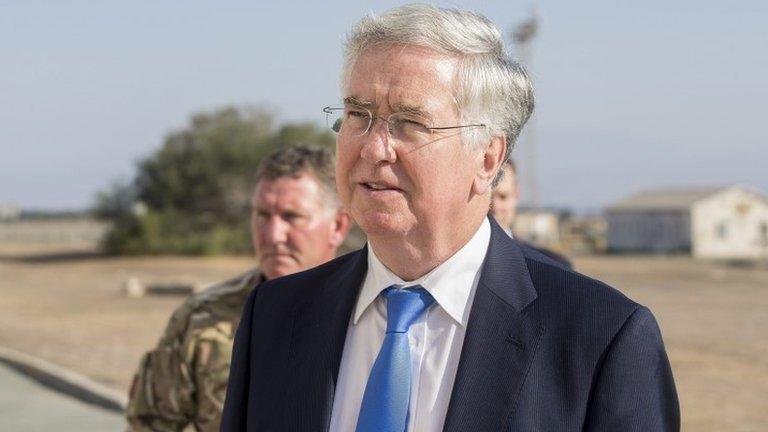
- Published26 November 2015
